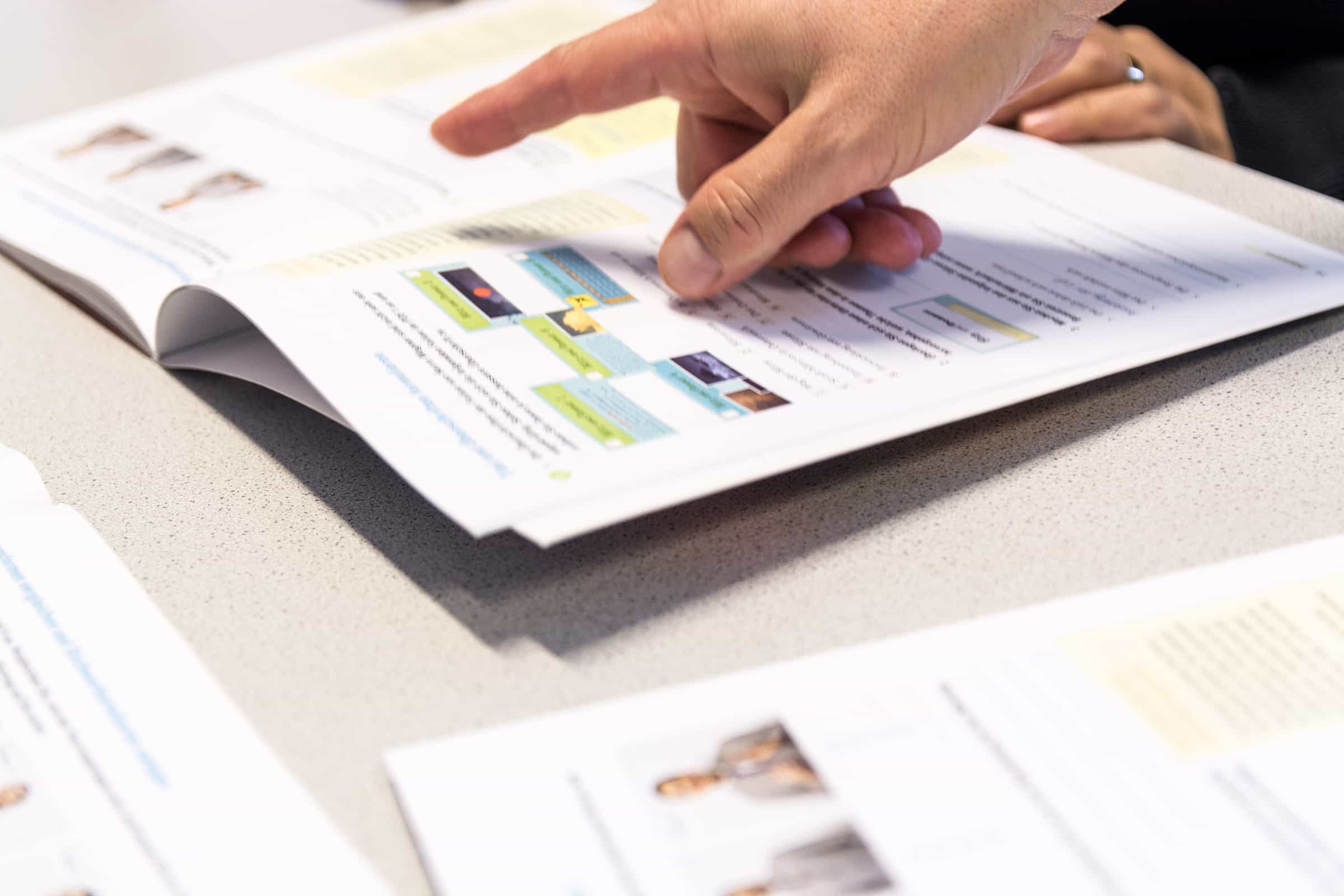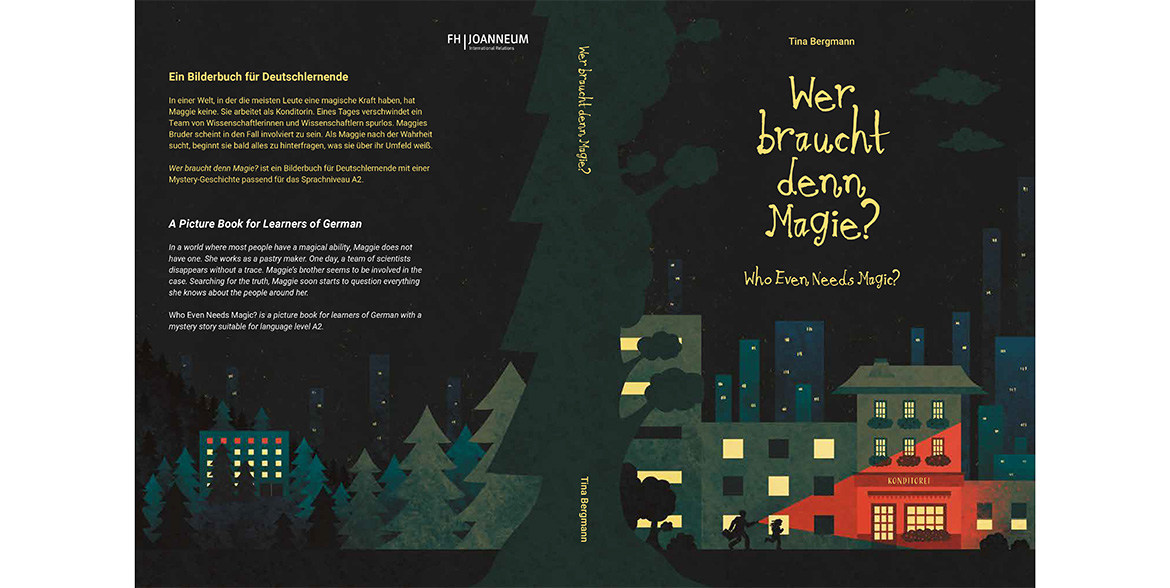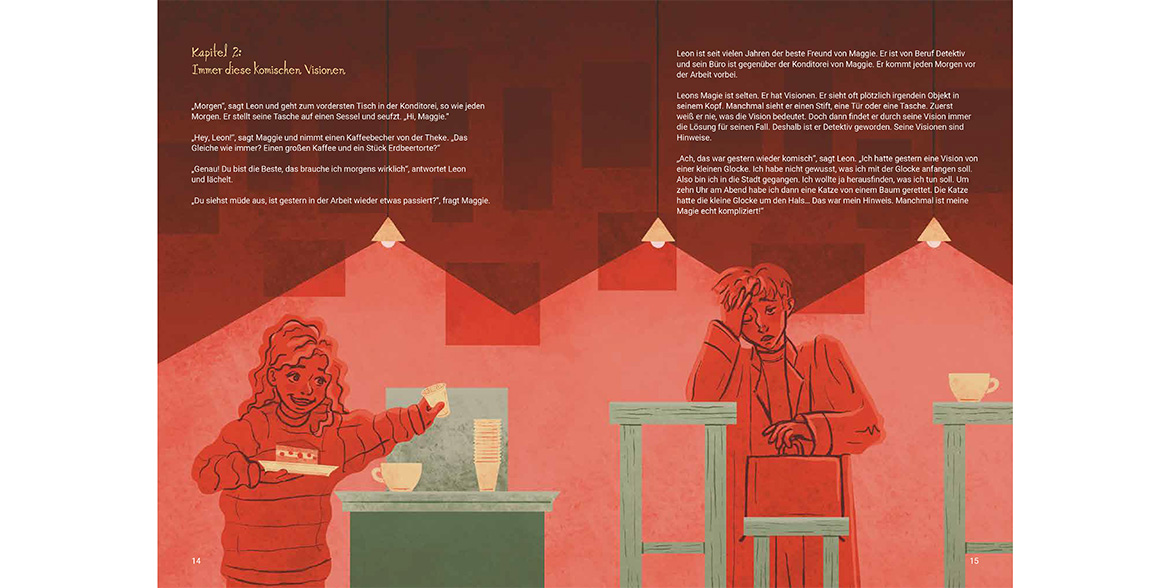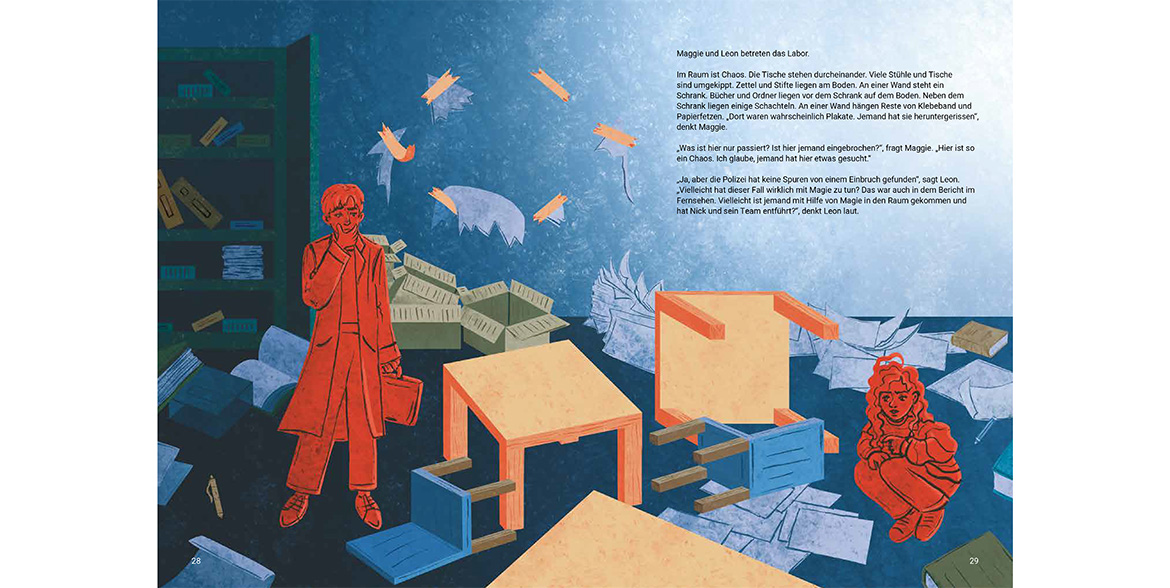Teaching and Learning Materials
Most of the teaching and learning materials are contained in the shelf GB 3041 (German as a Foreign Language) of the Graz library and are available for use on site or can be borrowed.
The German as a Foreign Language team (DaF) at FH JOANNEUM developed own teaching materials for all German language courses. The only exceptions are the two basic courses, 1 and 2, for which the Schritte plus neu Österreich (Hueber) course book is used. This represents a further important step in assuring and improving the quality of German language courses at FH JOANNEUM.
Teaching materials
Up-to-date and didactic teaching materials, which are designed specifically to meet the needs of language learners at university level, provide the basis for optimum learning progress.
Manufactor: FH JOANNEUM – DaF / Internationale Beziehungen
The teaching materials differ from traditional course books in many ways: they are specially tailored to the course length (30 hours, 2 hours per week) and the Common European Framework of Reference for Languages (CEFR) standards. In addition, the design, structure and themes of the units are designed to motivate learning.
Available materials:
Basic courses (grammar):
- Grundstufe 3 (A2/1), 8th edition 2022
- Grundstufe 4 (A2/2), 5th edition 2022
- Mittelstufe 1 (B2/1), 6th edition 2021
- Mittelstufe 2 (B1/2), 4th edition 2020
- Mittelstufe 3 (B2/1), 5th edition 2022
- Mittelstufe 4 (B2/2), 4th edition 2021
- Oberstufe 1 (C1/1), 4th edition 2022
- Oberstufe 2 (C1/2), 3rd edition 2018
Competences:
- Lese- und Schreibtraining 1 (A2), 5th edition 2018 (last edition)
- Lese- und Schreibtraining 1/1 (A2), 1st edition 2019
- Lese- und Schreibtraining 1/2 (A2), 1st edition, first print 2021
- Lese- und Schreibtraining 2 (B1-B2), 5th edition 2018 (last edition)
- Lese- und Schreibtraining 2/1 (B1), 6th edition 2018
- Lese- und Schreibtraining 2/2 (B2), 1st edition 2021
- Lese- und Schreibtraining 3 (C1), 4th edition 2020
- Hörverstehen und Sprechtraining 1 (A2), 6th, revised edition 2018 (last edition)
- Hörverstehen und Sprechtraining 1/1 (A2), 1st edition 2019
- Hörverstehen und Sprechtraining 1/2 (A2), 2nd edition 2021
- Hörverstehen und Sprechtraining 2 (B1-B2), 6th, revised edition 2018 (last edition)
- Hörverstehen und Sprechtraining 2/1 (B1), 1st edition 2019
- Hörverstehen und Sprechtraining 2/2 (B2), 2nd edition2021
- Hörverstehen und Sprechtraining 3 (C1), 4th edition 2020
Special courses:
- Austria – People and Culture (Englisch), 4th, revised edition 2015 (last edition)
- Deutschsprachiger Film, 4th edition 2020
- Austria – People and Culture (German version), 2nd, revised edition 2014 (last edition)
- Business German (B2-C1), 3rd revised edition 2021
- Communication in an Intercultural Context, 1st edition 2016 (last edition)
- Sprech_Kulturen (from level B1 upwards), 1st edition 2018
Currently used learning material is written in bold.











